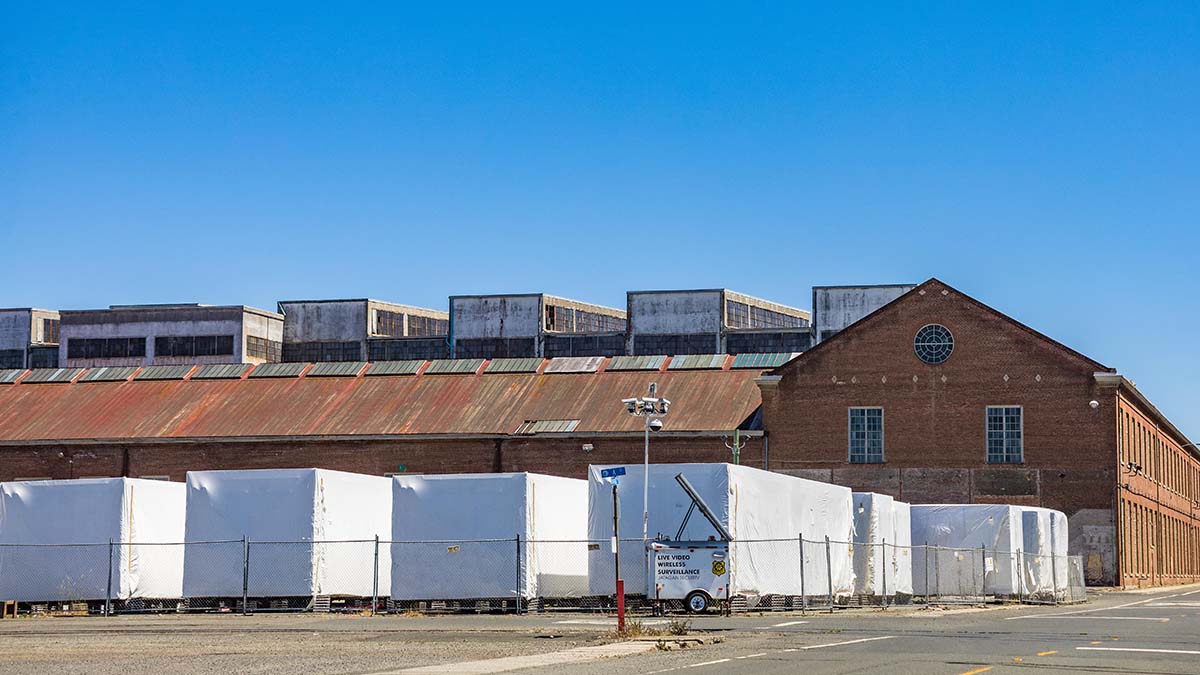
Opportunity zones provide great tax incentives that can help boos the ROI of a project, but they may not be around forever so if you’re interested in utilizing the program, this article may be time sensitive for you to read.
In this article, you’ll learn the key elements of opportunity zones, including the benefits of investing in these designated locations and how to locate and participate in opportunity zone projects. We also examine the possible dangers and obstacles of investing in opportunity zones. Let’s begin!
Table of Contents
What is an Opportunity Zone in Commercial Real Estate?
An opportunity zone is a designation created by the U.S. government to encourage investment in specific low-income communities. Under the program, commercial real estate investors are encouraged to make new investments in qualified opportunity zones via tax incentives provided by the federal government and Internal Revenue Service (IRS). The program aims to stimulate economic development and job creation in these communities.
What is the Purpose of Opportunity Zones in Real Estate?
The intent of opportunity zones is to stimulate economic growth and stability in economically-distressed communities.
The opportunity zone program is designed to do this by offering tax benefits to investors who invest in a qualified opportunity zone property or real estate development within a designated area.
By offering tax benefits to private investors, the program attracts capital investment to low-income areas that historically might not receive the private investment otherwise.
How Were Opportunity Zones Created?
Opportunity Zones were created in the Tax Cuts and Jobs Act of 2017. The program is designed to encourage investment in low-income communities by offering tax benefits to investors who invest in businesses and real estate projects in these designated areas. To determine the specific areas of opportunity zones, U.S. states nominated economically distressed areas within their borders that could benefit from economic stimulation as potential opportunity zones. After states selected particular areas, the U.S. Department of the Treasury (or Treasury Department) designated opportunity zones and guided the requirements and rules of the program. After the Treasury Department established the zones and requirements, the IRS certified the areas and now enforces the tax benefits associated with the program.
What is an Example of an Opportunity Zone?
An opportunity zone is a specific geographic area that has been identified as economically distressed and officially categorized as an opportunity zone by the government.
The locations of all opportunity zones are public, and investors who choose to invest in real estate project within an opportunity zone become eligible for particular tax breaks.
The precise nature of these advantages are determined by the regulations of the opportunity zone program in that region.
What are the Benefits of Buying in an Opportunity Zone?
The primary benefit of investing in an opportunity zone is the potential to receive tax benefits that are associated with the program.
Two examples of opportunity zone tax benefits include 1) deferred or reduced capital gains taxes on the investments and 2) tax-free capital gains on investment properties within opportunity zones that are held for at least ten years.
The specific benefits available under the program depend on the location and the specific rules within that area.
How do You Buy Property in an Opportunity Zone?
Real estate purchases made outside of opportunity zones are virtually equivalent to those made inside of them. You must adhere to the opportunity zone program’s rules and standards in order to be eligible for the tax benefits. The actual transaction, however, is not unique from buying other commercial real estate.
How Long Will Opportunity Zones Last?
Opportunity zones were created as part of the Tax Cuts and Jobs Act of 2017. In the act, opportunity zones are slated to end on December 31, 2026. This implies that unless Congress extends the program, the opportunity zone program and the related tax incentives won’t be accessible after 2026.
If you’re interested in investing in an opportunity zone, keep an eye out for any updates regarding the extension of the program and speak local experts to ensure you get the most accurate information possible. The regulations and criteria of the program might differ based on the region.
What if I Already Own a Property in an Opportunity Zone?
If you already own a property in an opportunity zone, you may be eligible to receive certain tax benefits (assuming the property meets the requirements of the opportunity zone program). These benefits can include preferential tax treatment such as tax deferral, deferred gain, or reduced capital gains taxes.
The specific benefits available under the program can are different depending on the location of the opportunity zone program, so research the requirements and consult a professional tax advisor in your area.
What is QOZ in Real Estate?
QOZ stands for Qualified Opportunity Zone. A Qualified Opportunity Zone is an area determined by the U.S. Department of Treasury as part of the opportunity zones program from the Tax Cuts and Jobs Act of 2017.
What is QOF in Real Estate?
A Qualified Opportunity Fund (QOF) is a domestic corporation or partnership that invests in QOZ property. A QOF can invest directly by holding eligible properties located within a QOZ.
What is an Opportunity Zone Fund
An opportunity zone fund is a type of investment vehicle specifically designed to invest in businesses and real estate projects located within designated opportunity zones. These funds focus strictly on opportunity zone assets and take advantage of the tax benefits available with opportunity zone investing. Opportunity zone fund management is typically handled by fund managers with substantial knowledge of qualified opportunity zone program properties, opportunity zone tax benefits, local leaders, local governments, and local communities. All in all, opportunity zone funds can be an excellent way for passive and active investors to generate a financial return while supporting economic development and job creation in low-income communities.
What are the Tax Benefits of an Opportunity Zone?
Taxpayers who invest in a qualified opportunity zone fund may qualify for three income tax benefits: deferral, discount, and exemption. Let’s look at each benefit one at a time.
Deferral
If capital gains from the sale of a property are invested in a QOF within 180 days after the sale, the taxpayer may delay reporting the profits from their sale. This enables a taxpayer to delay the realization of their capital gains by investing in a QOF until either the QOF is sold or December 31, 2026 (whichever comes first). It’s important to note that if taxpayers can invest more than their eligible gain, only their capital gain from the original sale will be eligible for the program’s tax benefits.
Deferral Example
Suppose a person who goes by the name “Investor A” sells a large commercial property in June 2021 and realizes a $1 million long-term financial gain. In October 2021, Investor A used the $1 million of capital gains to make an opportunity fund investment in a QOF. By doing this, Investor A can defer $200,000 in long-term capital gains tax ($1 million x 20%) that would have been due on their 2023 income tax return by investing in a QOF within the allotted 180 days from the date of the sale. This gives them $200,000 extra in “buying power” to invest.
Discount or Exemption
A taxpayer can qualify for a long-term discount or exemption after realizing the capital gains initially invested into a project. The IRS states that a taxpayer’s eligibility for a reduction or exemption of the delayed gain depends on how long they have owned their QOF investment. This framework intends to encourage long-term investment in the particular opportunity zone regions.
Here’s how the IRS outlines these tax benefits:
- If the investor holds the QOF investment for at least five years, the basis of the QOF investment increases to 10% of the deferred gain.
- If the investor holds the QOF investment for at least seven years, the basis of the QOF investment increases to 15% of the deferred gain.
- If the investor holds the investment in the QOF for at least ten years, the investor is eligible to elect to adjust the basis of the QOF investment to its fair market value on the date that the QOF investment is sold or exchanged.
Discount Example
Continuing on with the example, when Investor A made the investment in June 2021, Investor A’s cost basis in the QOF is considered zero, even though they contributed $1 million. Let’s assume that by 2026, Investor A’s cost basis in the QOF increases from zero to $100,000 (which is a 10% increase based on the original $1 million contribution). According to the tax benefits outlined by the IRS, If Investor A decides to sell in 2026, they are empowered only to recognize $900,000 in capital gains instead of the $1 million that they would have recognized in 2021 had they not invested in the QOF. As you can see, the discount tax benefit saves Investor A approximately 10%, or $100,000, in capital gains taxes.
Exemption Example
Let’s say that Investor A decides to play the long game and holds on to the property for ten years. Suppose that over the ten-year holding period, Investor A’s interest in the QOF doubled from $1 million to $2 million by 2031. During that time, Investor A reported capital gains on their initial $1M QOF investment due to the (current) mandatory recognition date of December 31, 2026, and paid the related tax. When Investor A sells the property in 2031, the remaining $1M gain is not subject to capital gains tax since Investor A remained invested in the QOF for a minimum of ten years.
Summary of Opportunity Zone Tax Benefits in Real Estate
As the examples demonstrate, a real estate investment in an opportunity zone can substantially affect an investor’s taxable income. If an investor holds on to commercial properties within an opportunity for ten years, some of their profits may be eligible for permanent exclusion.
What are the potential risks of investing in real estate opportunity zones?
There are several potential risks when investing in real estate opportunity zones. One risk is that the property’s value or investment may not increase as expected. This could happen if the economic development and job creation efforts in the opportunity zone fail or other factors negatively impact the property’s value. Additional risks can be associated with investing in low-income areas, such as market instability, crime, changes in zoning laws, lower foot traffic, etc. As a result, always carefully research the opportunity zone and specific property and consult with professionals.
What are the requirements for deploying capital in opportunity funds?
The requirements for deploying capital in opportunity funds can vary depending on the location and the specific rules of the opportunity zone program. According to the IRS, investors must put capital gains into a qualified opportunity fund within 180 days of the date of the exchange or sale that created the capital gain in order to qualify for opportunity fund tax benefits.The investment must also meet specific requirements, such as being made in a business or real estate project located in a designated opportunity zone. Additionally, the investment must be held for a certain period to be eligible for the tax benefits, typically at least ten years. It is essential to research the specific requirements and consult with professionals.
What are important Opportunity Zone Terms to Understand?
There are several important terms to understand when investing in opportunity zones. These terms include:
- Opportunity zone: A designation created by the U.S. government to encourage investment in low-income communities.
- Opportunity zone fund: An investment vehicle specifically designed to invest in businesses and real estate projects located in designated opportunity zones.
- Qualified opportunity zone: An area designated as an opportunity zone by the government and meets the requirements of the opportunity zone program.
- Capital gains: The profit realized from the sale or exchange of an asset, such as stocks, bonds, or real estate.
- Tax benefits: The potential reductions or deferrals in taxes that may be available to investors who invest in opportunity zones.
- Understanding these terms and how they relate to the opportunity zone program is essential to take advantage of the potential benefits and avoid pitfalls.
What’s the difference between Opportunity Zones and 1031 Exchanges?
The main difference between opportunity zones and 1031 exchanges is the type of investment they are designed to encourage. Opportunity zones are designed to promote investment in real estate located in low-income communities. In contrast, 1031 exchanges are designed to encourage investment in real estate by allowing investors to defer capital gains taxes when they sell one property and reinvest the proceeds in another property. Another key difference is that opportunity zones have a set expiration date of December 31, 2026, while 1031 exchanges do not have a set expiration date.
Summary
Opportunity zones in real estate are a type of program designed to encourage investment in underdeveloped or economically distressed areas and provide excellent investment opportunities for commercial real estate developers and investors. While there are plenty of benefits to invest in opportunity zones, there are also plenty of natural risks associated with them as well. Always conduct your own due diligence and assess properties on a case by case basis.
If you want to continue building your knowledge of real estate terminology, read our article on essential real estate investing definitions next.



